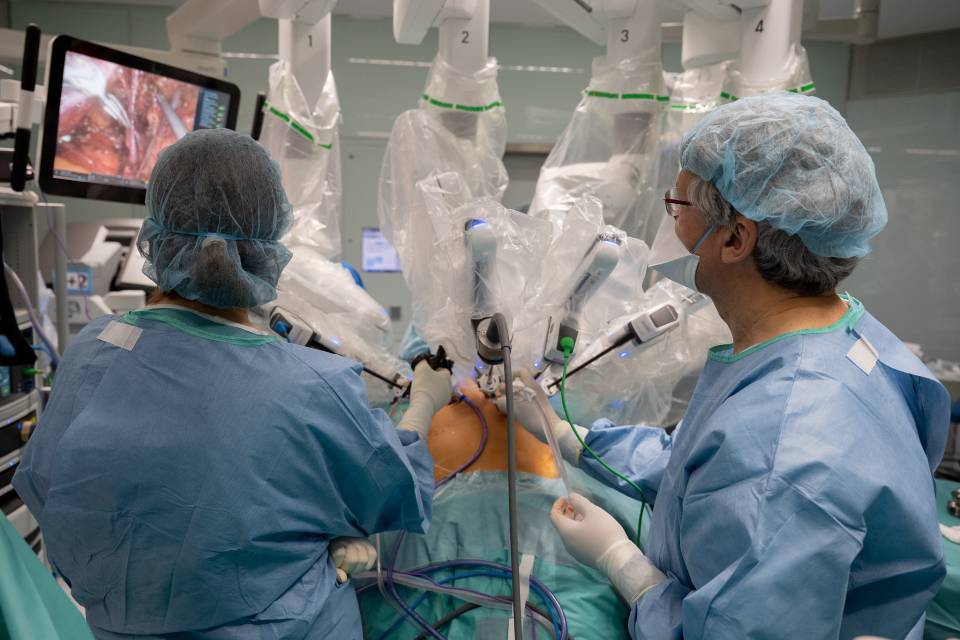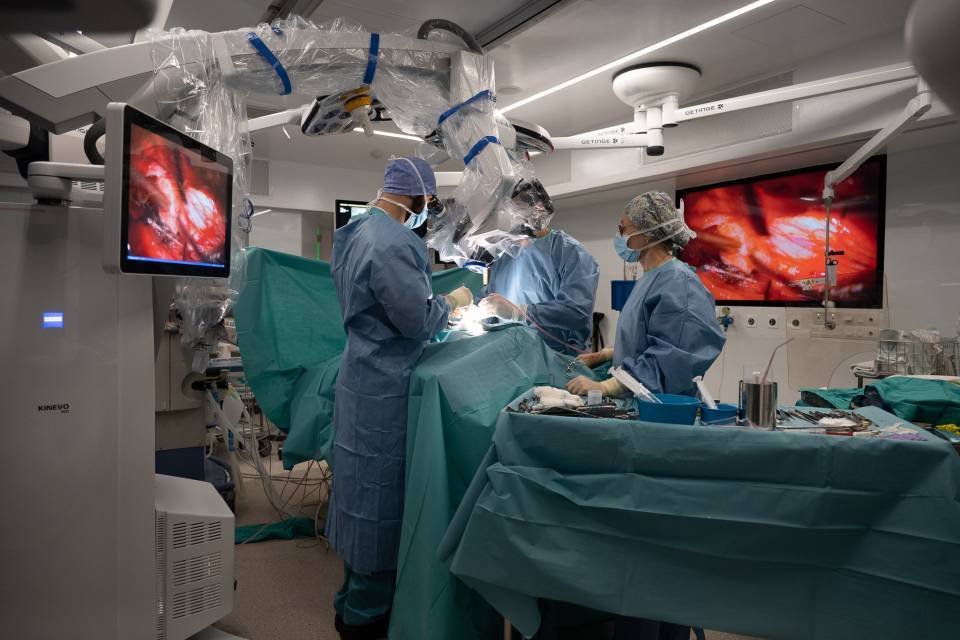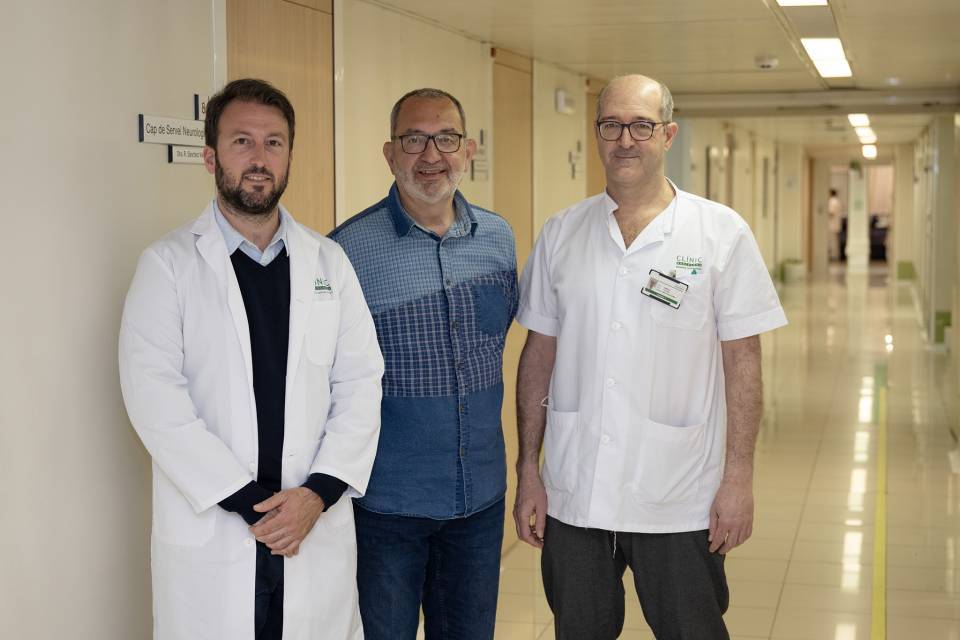Neurosurgery Service
Research - Neurosurgery Service
Clinical research is one of the essential parts of the Neurosurgery Service. Collaboration with other research groups is key to success in ongoing projects. Our close relationship with the Department of Anatomy of the University of Barcelona, which is key in defining new pathways for the surgical approach, must be highlighted.
The research is carried out mainly through the August Pi i Sunyer Biomedical Research Institute (IDIBAPS), specifically through the groups:
The main lines of research of the Neurosurgery Service are:
- Endoscopic surgery, skull base and new surgical approaches. Minimally invasive and transnasal endoscopic approaches have revolutionized surgical access to the base of the skull. The Service has been a pioneer in establishing the limitations and directions of these new procedures. With the collaboration of the Otorhinolaryngology Service, relevant work has been carried out on these new therapeutic approaches. Today, the number of publications on transnasal endoscopic surgery for skull-based approaches are frequent and internationally recognized. The results of the research group in surgical neuroanatomy have been acknowledged with relevant grants, such as those of La Marató de TV3. The research group maintains an alliance with prestigious international centers such as the University of Naples and the Mayfield Clinic (Cincinnati, USA). This relationship allows a constant exchange of knowledge that has materialized with the publication of high quality scientific papers.
- Functional Surgery and Epilepsy. Research in this field is one of the most characteristic and productive of the Service. With more than 20 years of tradition, the collaboration with Neurology and Neuroradiology has facilitated a constant scientific production with a high impact on these diseases. This research stands out not only in the clinical study of patients who have had surgical operations, but also in the translational study of oxidative stress markers in relation to epilepsy. The commitment to technological research has become one of the hallmarks of this research group, which has been a pioneer in the study of advanced intraoperative imaging.
- Vascular Neurosurgery. This has been a constantly evolving field in recent years. One of the main lines of research is the study of clinical and imaging markers in surgical vascular disease (AVMs and aneurysms). Translational research in this group should be highlighted. The study of early damage in hemorrhage secondary to aneurysmal rupture is the aim of a grant from La Marató de TV3 obtained in 2017. Of note is the commitment to research and technological innovation through intraoperative 3D rotational fluoroscopy and the use of new surgical approaches in aneurysmal clipping. The group was one of the first to publish the clipping of an aneurysm using a transnasal endoscopic approach.
- Oncological surgery, spinal surgery and intraoperative technological innovation. The Service develops translational research as a basic tool in understanding Brain Tumors. The research group is participating in a multicenter study in the detection of tumor DNA samples using liquid biopsy. It also is studying new intraoperative technological advances to obtain excellent surgical results in Oncological and Spinal Surgery. The endowment of the "smart" operating room has allowed the publication of various works related to this new technology. The use of intraoperative magnetic resonance imaging has been key in the study of tumor resection in Cerebral Gliomas.
Several researchers from the Service are involved in publicly funded projects.
Clinical research
Discover the projects and active clinical trials of this service.
Go to list
News related with the service
Clínic Barcelona
Clínic Barcelona
March 27 2025
Clínic Barcelona
Clínic Barcelona
June 7 2023
2023-06-07
The Hospital Clínic Neurosurgery Service consolidates its commitment to innovation and robotic surgery
Clínic Barcelona
Clínic Barcelona
April 28 2023
2023-04-28


